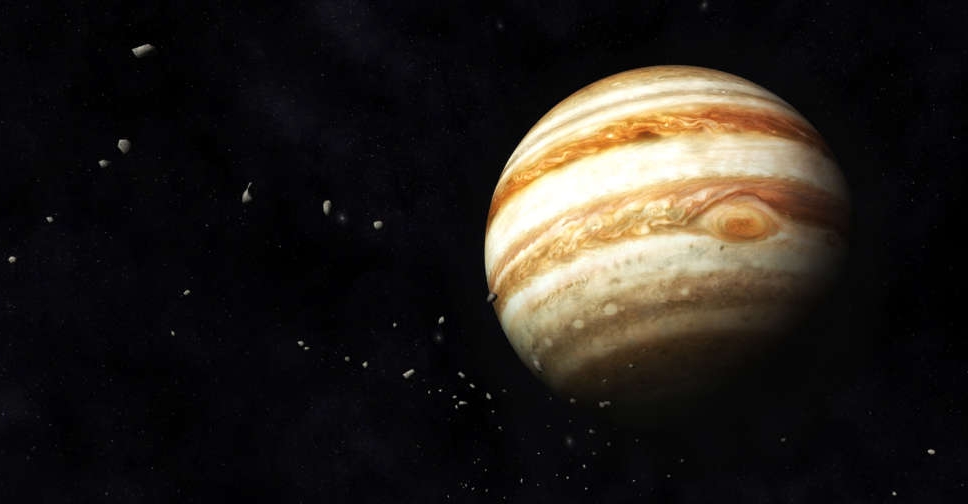
NASA is set to launch a first-of-its-kind mission, dubbed Lucy, to study Jupiter's Trojan asteroids on Saturday.
Scientists believe that the two large clusters of space rocks are remnants of the primordial material that formed the solar system's outer planets.
The space probe, packed inside a special cargo capsule, is due for liftoff from Cape Canaveral Air Force Station in Florida at 5:34 am EDT (1:34 pm UAE time), carried aloft by an Atlas V rocket from United Launch Alliance (UAL), a joint venture of Boeing Co and Lockheed Martin Corp.
Lucy will be hurled into space on a 12-year expedition to study a record number of asteroids if all goes according to plan. It will be the first to explore the Trojans, thousands of rocky objects orbiting the sun in two swarms - one ahead of the path of the giant gas planet Jupiter and one behind it.
The largest known Trojan asteroids, named for the warriors of Greek mythology, are believed to measure as much as 225 kilometres (140 miles) in diameter.
Scientists hope Lucy's close-up fly-by of seven Trojans will yield new clues to how the solar system's planets came to be formed some 4.5 billion years ago and what shaped their present configuration.
Believed to be rich in carbon compounds, the asteroids may even provide new insights into the origin of organic materials and life on Earth, NASA said.
"The Trojan asteroids are leftovers from the early days of our solar system, effectively the fossils of planet formation," principal mission investigator Harold Levison of the Southwest Research Institute in Boulder, Colorado, was quoted by NASA as saying.
No other single science mission has been designed to visit as many different objects independently orbiting the sun in the history of space exploration, NASA said.
As well as the Trojans, Lucy will do a fly-by of an asteroid in the solar system's main asteroid belt, called Donald Johanson, in honour of the lead discoverer of the fossilized human ancestor known as Lucy, from which the NASA mission takes its name. The Lucy fossil, unearthed in Ethiopia in 1974, was named for the Beatles hit "Lucy in the Sky with Diamonds."
Lucy, the asteroid probe will make spaceflight history in another way. Following a route that circles back to Earth three times for gravitational assists, it will be the first spacecraft ever to return to Earth's vicinity from the outer solar system, according to NASA.
The probe will use rocket thrusters to manoeuvre in space and two rounded solar arrays, each the width of a school bus, to recharge batteries that will power the instruments contained in the much smaller central body of the spacecraft.




 South Korea court jails former first lady for bribery
South Korea court jails former first lady for bribery
 Britain's Starmer arrives in China as Western alliances face strain
Britain's Starmer arrives in China as Western alliances face strain
 Indian minister Ajit Pawar dies in plane crash
Indian minister Ajit Pawar dies in plane crash
 Winter storm kills dozens as cold lingers in central and eastern US
Winter storm kills dozens as cold lingers in central and eastern US
 India reports two Nipah virus infections as Thai, Malaysia step up screening
India reports two Nipah virus infections as Thai, Malaysia step up screening




